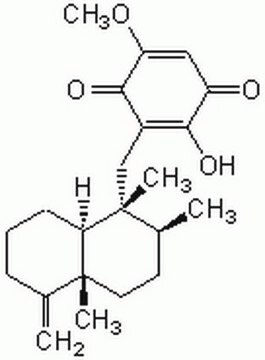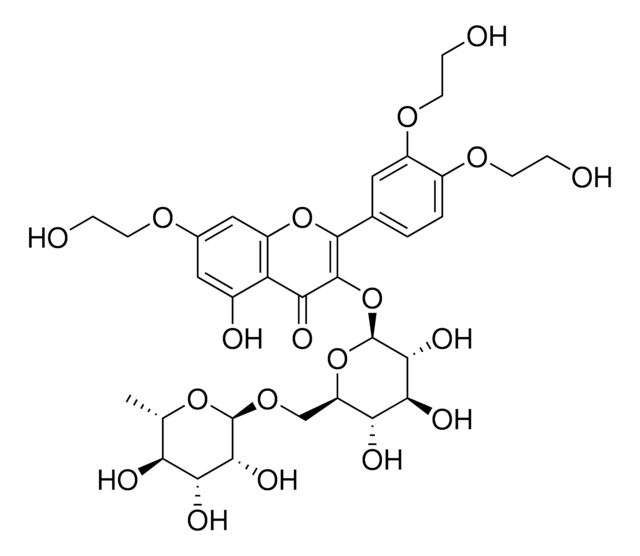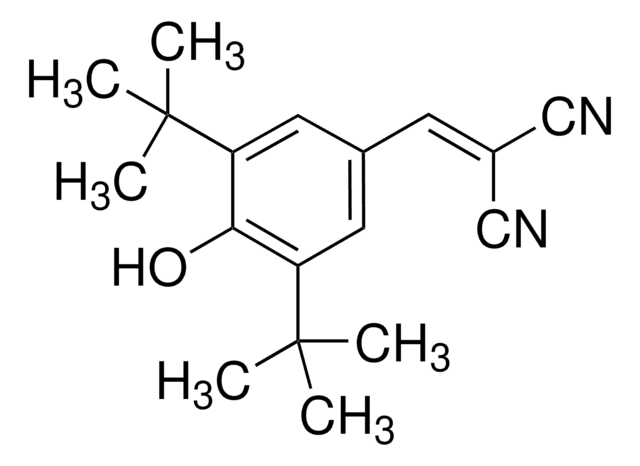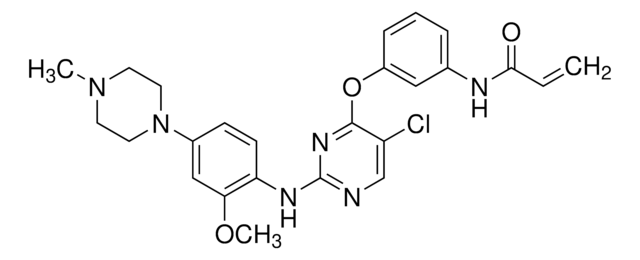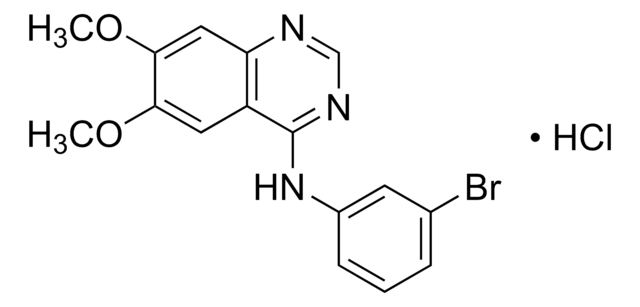T4182
Tyrphostin AG 1478
≥98%
Synonym(s):
N-(3-Chlorophenyl)-6,7-dimethoxy-4-quinazolinamine
About This Item
Recommended Products
Quality Level
Assay
≥98%
form
solid
solubility
0.1 M HCl: soluble <0.4 mg/mL
DMSO:methanol (1:1): soluble 10 mg/mL, clear, colorless
ethanol: soluble 10 mg/mL
methylene chloride: soluble 10 mg/mL
0.1 M NaOH: insoluble
2-hydroxypropyl-β-cyclodextrin: insoluble
H2O: insoluble
storage temp.
2-8°C
SMILES string
COc1cc2ncnc(Nc3cccc(Cl)c3)c2cc1OC
InChI
1S/C16H14ClN3O2/c1-21-14-7-12-13(8-15(14)22-2)18-9-19-16(12)20-11-5-3-4-10(17)6-11/h3-9H,1-2H3,(H,18,19,20)
InChI key
GFNNBHLJANVSQV-UHFFFAOYSA-N
Gene Information
human ... EGFR(1956)
mouse ... Egfr(13649)
Application
Biochem/physiol Actions
Features and Benefits
Preparation Note
Storage Class Code
11 - Combustible Solids
WGK
WGK 3
Flash Point(F)
Not applicable
Flash Point(C)
Not applicable
Personal Protective Equipment
Certificates of Analysis (COA)
Search for Certificates of Analysis (COA) by entering the products Lot/Batch Number. Lot and Batch Numbers can be found on a product’s label following the words ‘Lot’ or ‘Batch’.
Already Own This Product?
Find documentation for the products that you have recently purchased in the Document Library.
Customers Also Viewed
Our team of scientists has experience in all areas of research including Life Science, Material Science, Chemical Synthesis, Chromatography, Analytical and many others.
Contact Technical Service





